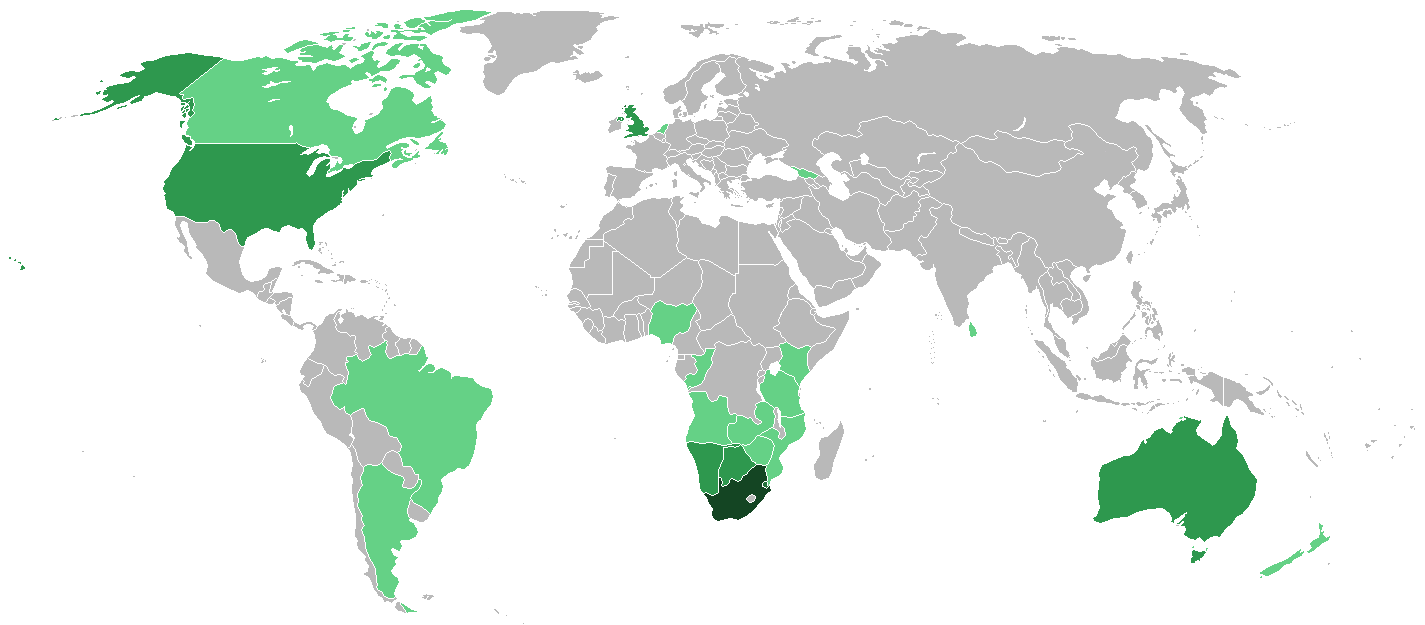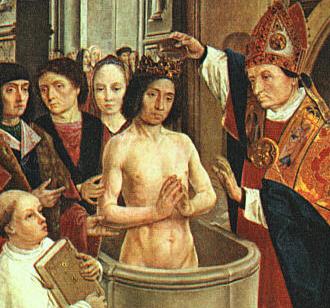|
Afrikaners
Afrikaners () are a Southern African ethnic group descended from predominantly Dutch people, Dutch Settler colonialism, settlers who first arrived at the Cape of Good Hope in Free Burghers in the Dutch Cape Colony, 1652.Entry: Cape Colony. ''Encyclopædia Britannica Volume 4 Part 2: Brain to Casting''. Encyclopædia Britannica, Inc. 1933. James Louis Garvin, editor. Until 1994, they dominated South Africa's politics as well as the country's commercial agricultural sector. Afrikaans, a language which evolved from the Hollandic Dutch, Dutch dialect of South Holland, is the First language, mother tongue of Afrikaners and most Cape Coloureds. According to the 2022 South African census, South African National Census of 2022, 10.6% of South Africans claimed to speak Afrikaans as a first language at home, making it the country's third-largest home language after Zulu language, Zulu and Xhosa language, Xhosa. The arrival of Portugal, Portuguese explorer Vasco da Gama at Calicut, In ... [...More Info...] [...Related Items...] OR: [Wikipedia] [Google] [Baidu] |
Afrikaner Calvinism
Afrikaner Calvinism () is a cultural and religious development among Afrikaners that combined elements of seventeenth-century Calvinist doctrine with a "chosen people" ideology based in the Bible. It had origins in ideas espoused in the Old Testament of the Jews as the chosen people. A number of modern studies have argued that Boers gathered for the Great Trek inspired by this concept, and they used it to legitimise their subordination of other South African ethnic groups. It is thought to have contributed the religious basis for modern Afrikaner nationalism. Dissenting scholars have asserted that Calvinism did not play a significant role in Afrikaner society until after they suffered the trauma of the Second Boer War. Early settlers dwelt in isolated frontier conditions and lived much closer to pseudo-Christian animist beliefs than organised religion. Background White settlement in South Africa is traced to the 1652 arrival of the Dutch East India Company at the Cape of G ... [...More Info...] [...Related Items...] OR: [Wikipedia] [Google] [Baidu] |
Afrikaans
Afrikaans is a West Germanic languages, West Germanic language spoken in South Africa, Namibia and to a lesser extent Botswana, Zambia, Zimbabwe and also Argentina where there is a group in Sarmiento, Chubut, Sarmiento that speaks the Patagonian Afrikaans, Patagonian dialect. It evolved from the Dutch language, Dutch vernacular of South Holland (Hollandic dialect) spoken by the free Burghers, predominantly Dutch settlers and slavery in South Africa#Dutch rule, enslaved population of the Dutch Cape Colony, where it gradually began to develop distinguishing characteristics in the 17th and 18th centuries. Although Afrikaans has adopted words from other languages including German language, German, Malay language, Malay and Khoisan languages, an estimated 90 to 95% of the vocabulary of Afrikaans is of Dutch origin. Differences between Afrikaans and Dutch often lie in the more analytic language, analytic Morphology (linguistics), morphology and grammar of Afrikaans, and differ ... [...More Info...] [...Related Items...] OR: [Wikipedia] [Google] [Baidu] |
Dutch People
The Dutch, or Netherlanders (Dutch language, Dutch: ) are an ethnic group native to the Netherlands. They share a common ancestry and culture and speak the Dutch language. Dutch people and their descendants are found in migrant communities worldwide, notably in Argentina, Aruba, Australia, Brazil, Canada,Based on Statistics Canada, Canada 2001 Census]Linkto Canadian statistics. Caribbean Netherlands, Curaçao, Germany, Guyana, Indonesia, New Zealand, Sint Maarten, South Africa, Suriname, and the United States.According tFactfinder.census.gov The Low Countries were situated around the border of France and the Holy Roman Empire, forming a part of their respective peripheries and the various territories of which they consisted had become virtually autonomous by the 13th century. Under the Habsburgs, the Netherlands were organised into a single administrative unit, and in the 16th and 17th centuries the Northern Netherlands gained independence from Spain as the Dutch Republic. The ... [...More Info...] [...Related Items...] OR: [Wikipedia] [Google] [Baidu] |
Griqua People
The Griquas are a subgroup of mixed-race heterogeneous formerly-Xiri-speaking nations in South Africa with a unique origin in the early history of the Dutch Cape Colony. Text was copied from this source, which is available under a Creative Commons license. Like the Boers, they migrated inland from the Cape and in the 19th century established several states in what is now South Africa and Namibia. The Griqua consider themselves as being South Africa’s first multiracial nation with people descended directly from Dutch settlers in the Cape, and local peoples. History Griqua was the name given to a mixed-race culture in the Cape Colony of South Africa, around the 17th and 18th centuries (Taylor, 2020). They were also known as Hottentots before Europeans arrived in their lands where they lived as close-knit families. Griqua people’s multiple historical backgrounds have interwoven with rigid apartheid classification, academic attempts to fix the parameters of Griqua identity and ... [...More Info...] [...Related Items...] OR: [Wikipedia] [Google] [Baidu] |
Cape Coloured
Cape Coloureds () are a South African group of Coloured people who are from the Cape region in South Africa which consists of the Western Cape, Northern Cape and the Eastern Cape. Their ancestry comes from the interracial mixing between the European, the indigenous Khoi and San, the Xhosa plus other Bantu people, indentured labourers imported from the British Raj, slaves imported from the Dutch East Indies, immigrants from the Levant or Yemen (or a combination of all). Eventually, all these ethnic and racial groups intermixed with each other, forming a group of mixed-race people that became known as the "Cape Coloureds". Demographics Although Coloureds represent only 8.15% of people within South Africa, they make up 42.1% of the population in the Western Cape, representing a plurality of the population of the province. (according to the 2022 South African census) They are generally bilingual, speaking Afrikaans and English, though some speak only one of these. ... [...More Info...] [...Related Items...] OR: [Wikipedia] [Google] [Baidu] |
White Namibians
White Namibians ( or ) are people of European descent settled in Namibia. The majority of White Namibians are Dutch-descended Afrikaners (locally born or of White South African descent), with a minority being native-born German Namibians (descended from Germans who colonised Namibia in the late-nineteenth century). There are also some Portuguese and English immigrants. 53,773 Namibians identified as White in the 2023 census, representing 1.8% of the population of Namibia. Distribution The vast majority of White Namibians live in major cities and towns in central or southern Namibia. Windhoek has by far the largest White population, and Whites are a majority in the coastal city of Swakopmund. Other coastal cities, such as Walvis Bay and Lüderitz, also have large White communities. In general, most of Namibia south of Windhoek has a high proportion of Whites, while central Namibia has a high concentration of Blacks. Apart from Windhoek, coastal areas and Southern Namibi ... [...More Info...] [...Related Items...] OR: [Wikipedia] [Google] [Baidu] |
Indo People
The Indo people (, ) or Indos are Eurasian people living in or connected with Indonesia. In its narrowest sense, the term refers to people in the former Dutch East Indies who held European legal status but were of mixed Dutch and Native Indonesians, indigenous Ethnic groups in Indonesia, Indonesian descent as well as their descendants today. In the broadest sense, an Indo is anyone of mixed European and Indonesian descent. Indos are associated with colonial culture of the former Dutch East Indies, a Dutch colony in Southeast Asia and a predecessor to modern Indonesia after its Proclamation of Indonesian Independence, proclamation of independence shortly after World War II. The term was used to describe people acknowledged to be of mixed Dutch and Indonesian descent, or it was a term used in the Dutch East Indies to apply to Europeans who had partial Asian ancestry. "Indos–people of Dutch descent who stayed in the new republic Indonesia after it gained independence, or who em ... [...More Info...] [...Related Items...] OR: [Wikipedia] [Google] [Baidu] |
British Diaspora In Africa
The British diaspora in Africa is a population group broadly defined as English-speaking people of mainly (but not only) British descent who live in or were born in Sub-Saharan Africa. The majority live in South Africa and other Southern African countries in which English is a primary language, including Zimbabwe, Namibia, Kenya, Botswana and Zambia. Their first language is usually English. History Colonialism Although there were earlier British settlements at ports along the West African coast to facilitate the British Atlantic slave trade, more permanent British settlement in Africa did not begin in earnest until the end of the eighteenth century, at the Cape of Good Hope. British settlement in the Cape gained momentum following the second British occupation of the Dutch Cape Colony in 1806. The government encouraged British settlers in Albany ("Settler Country") in 1820 in order to consolidate the British Cape Colony's eastern frontier during the Cape Frontier War ... [...More Info...] [...Related Items...] OR: [Wikipedia] [Google] [Baidu] |
German Namibians
German Namibians (; ) are a community of people descended from ethnic German colonists who settled in present-day Namibia. In 1883, the German trader Adolf Lüderitz bought what would become the southern coast of Namibia from Josef Frederiks II, a chief of the local Oorlam people, and founded the city of Lüderitz. The German government, eager to gain overseas possessions, annexed the territory soon after, proclaiming it German South West Africa (). Small numbers of Germans subsequently immigrated there, many coming as soldiers (), traders, diamond miners, or colonial officials. In 1915, during the course of World War I, Germany lost its colonial possessions, including South West Africa (see History of Namibia); after the war, the former German colony was administered as a South African mandate. Roughly half of the German settlers were allowed to remain and, until independence in 1990, German remained an official language of the territory alongside Afrikaans and Englis ... [...More Info...] [...Related Items...] OR: [Wikipedia] [Google] [Baidu] |
South African Republic
The South African Republic (, abbreviated ZAR; ), also known as the Transvaal Republic, was an independent Boer republics, Boer republic in Southern Africa which existed from 1852 to 1902, when it was annexed into the British Empire as a result of the Second Boer War. The ZAR was established as a result of the 1852 Sand River Convention, in which the Government of the United Kingdom, British government agreed to formally recognise independence of the Boers living north of the Vaal River. Relations between the ZAR and Britain started to deteriorate after the British Cape Colony expanded into the Southern African interior, eventually leading to the outbreak of the First Boer War between the two nations. The Boer victory confirmed the ZAR's independence; however, Anglo-ZAR tensions soon flared up again over various diplomatic issues. In 1899, war again broke out between Britain and the ZAR, which was swiftly occupied by British forces. Many Boer combatants in the ZAR Bittereinder, ... [...More Info...] [...Related Items...] OR: [Wikipedia] [Google] [Baidu] |
Flemish People
Flemish people or Flemings ( ) are a Germanic peoples, Germanic ethnic group native to Flanders, Belgium, who speak Flemish Dutch. Flemish people make up the majority of Belgians, at about 60%. ''Flemish'' was historically a geographical term, as all inhabitants of the medieval County of Flanders in modern-day Belgium, France and the Netherlands were referred to as "Flemings" irrespective of their ethnicity or language. The contemporary region of Flanders comprises a part of this historical county, as well as parts of the medieval Duchy of Brabant and the medieval County of Loon, where the modern national identity and Flemish culture, culture gradually formed. History The sense of "Flemish" identity increased significantly after the Belgian Revolution. Prior to this, the term "" in the Dutch language was in first place used for the inhabitants of the former County of Flanders. Flemish, however, had been used since the 14th century to refer to the language and dialects of both ... [...More Info...] [...Related Items...] OR: [Wikipedia] [Google] [Baidu] |









